Everything You Need to Know About Today's AI in Fashion
by Jess Erdman, Content Marketing LeadDecember 2023

As fashion tech continues to grow, it's important to become familiar with the most common terms used to describe new products. In 2023, we've seen massive growth in fashion tech--that's why we created an easy to understand fashion AI dictionary.
Bookmark this page as a reference point for fashion AI terminology--we'll continue to update it with new terms.
ChatGPT AI Stylist is an AI-powered virtual personal shopper created to understand a shopper's intention and quickly find matching products. Fueled by cutting-edge machine learning technology, the AI Stylist blends natural language processing and advanced computer vision, allowing shoppers to ask styling questions in their preferred languages—something that wasn't possible before.
Examples:

Product recommendations that can pair fashion-compatible items together to create a full outfit. YesPlz uses fashion-trained AI to make recommendations, resulting in fashion-forward looks that make sense. For example, users browsing sports sneakers may also be interested in leggings, workout shirts, and gym bags.
How does it work?
Through image classification, fashion AI can recognize both the category and style from a product image. Then, the AI browses thousands of product images and finds matching items in seconds.
YesPlz trains the AI with styling rules, based on real shopper feedback, to create “looks” that users want to see based on fashion preferences and relevance.

An emerging field of computer science that attempts to mirror the complex way humans visually identify and process information. With the addition of artificial intelligence, computer vision can analyze and interpret images.
Computer vision is the driving force behind fashion visual search and AI-powered image tagging. As startups continue to innovate in fashion, we’re seeing virtual fitting rooms, highly accurate similar product recommendations, and visual search solutions that rely on computer vision’s ability to identify products and product attributes.
Why computer vision is important in eCommerce:
Computer vision is making eCommerce more efficient by automating fashion tagging.
Manually tagging products takes hours (and results in inaccurate tags)--but computer vision can quickly and accurately tag product information.
Accurate, fast product tagging is at the core of personalization, search, and filters, making computer vision a “must-have” for any eCommerce.
The process of enhancing product data by creating quality product tags, attributes, and descriptions. In fashion eCommerce, inconsistent data from third-party retailers can lead to inaccurate and incomplete product information, as well as poor search. Through AI tagging tools, retailers can improve product data, paving the way for strong search and personalization.
For example, when tagging a dress, ideally there would be tags that include specific information about: sleeve length, waist, length, pattern, and more.
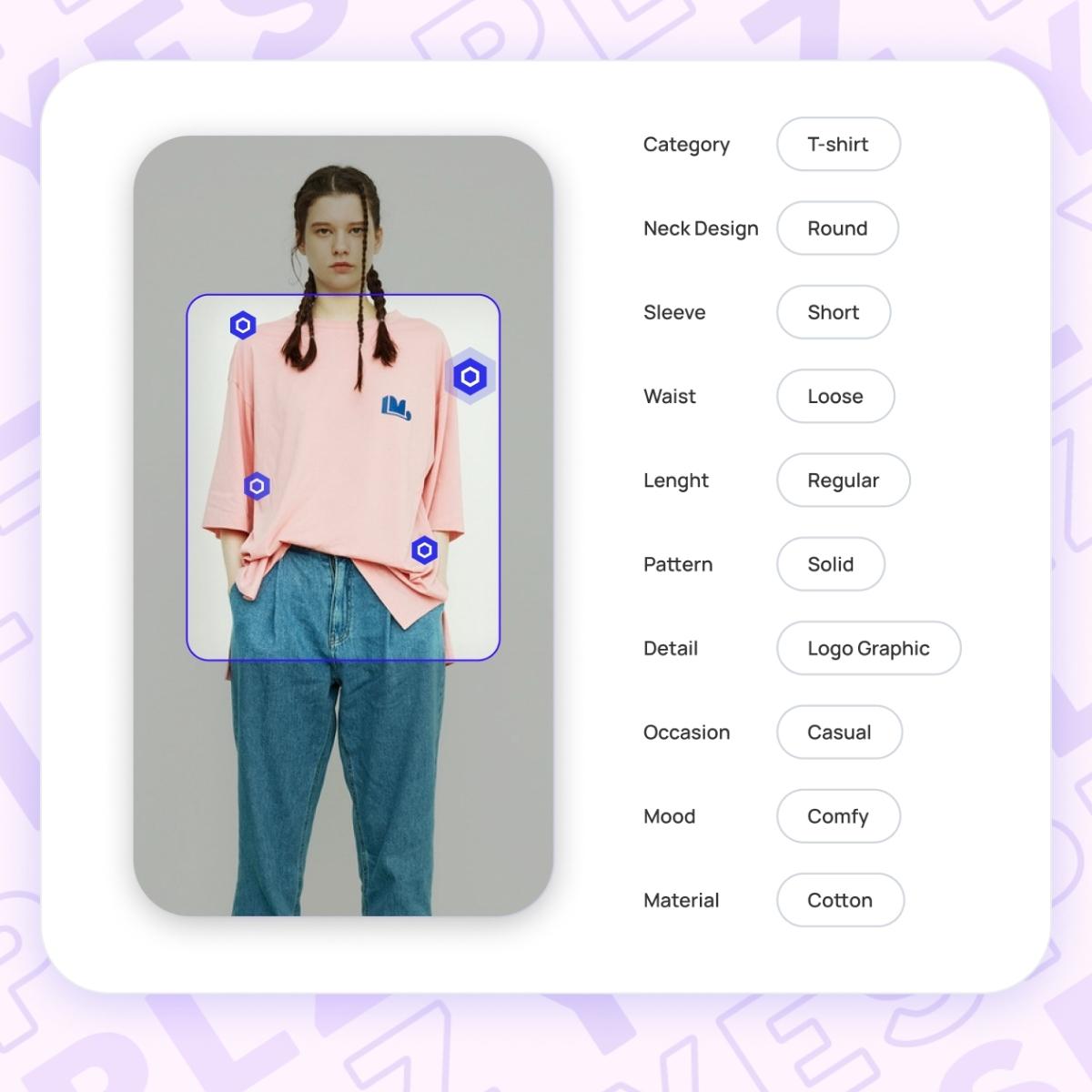
A branch of machine learning that uses a layered neural network to engage in complex learning that powers many AI-based products. Deep learning algorithms can analyze images and text without needing to “pre-process” the data.
For example, if deep learning algorithms were given images of a running sneaker and a boot (and asked to categorize), they would be able to identify which features belong in each category
Learn more about how YesPlz AI uses deep learning to make better fashion search and recommendations.
The use of computer vision/fashion AI to pull and map rich attributes from products that go beyond the pre-set text attributes tagged by third-party retailers.
Deep tagging goes beyond what a human can manually tag, by automatically and quickly identifying product attributes–and creating the foundation for personalization and dynamic search filters.
From forecasting fashion trends to revamping the customer experience, fashion AI is here to stay. The benefits of fashion AI are abundant: more efficiency, better customer experiences, and cost-savings. In fashion search, AI is being applied to create dynamic search filters, save time in product tagging, and provide more efficient search results.
Major retailers from H&M to Zara are implementing fashion AI in order to stay on top of trends, provide better search experiences, and solve complex fashion taxonomies.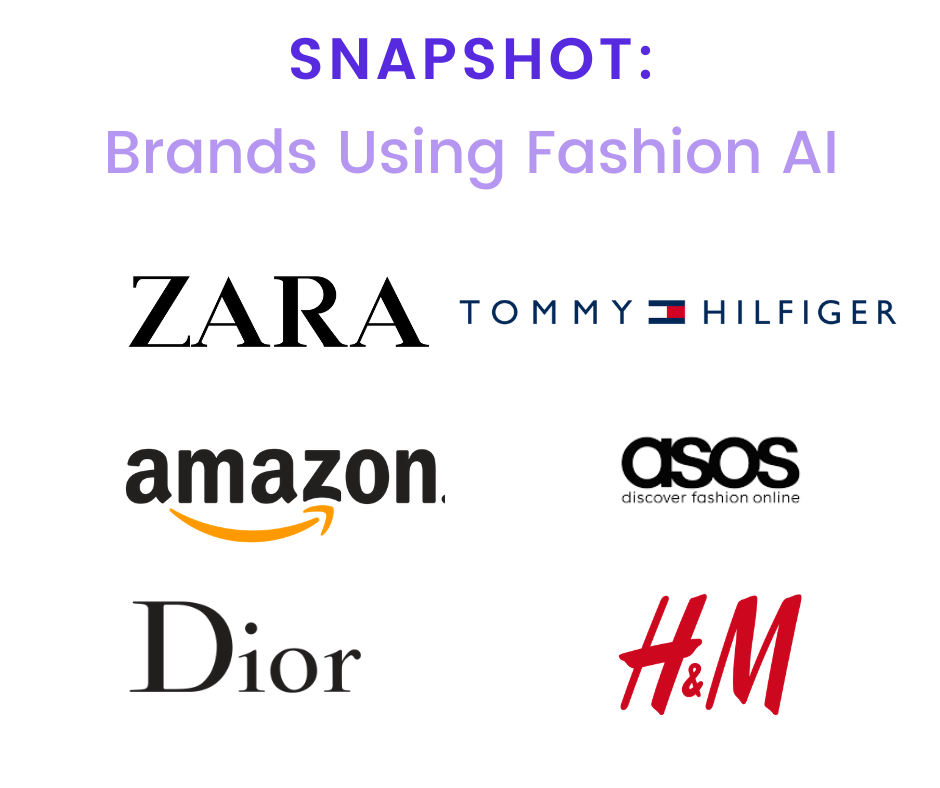
The use of an image as the stimulus for search–this can include uploading a picture of a product or visual-first virtual interface search, like the Style Filter.
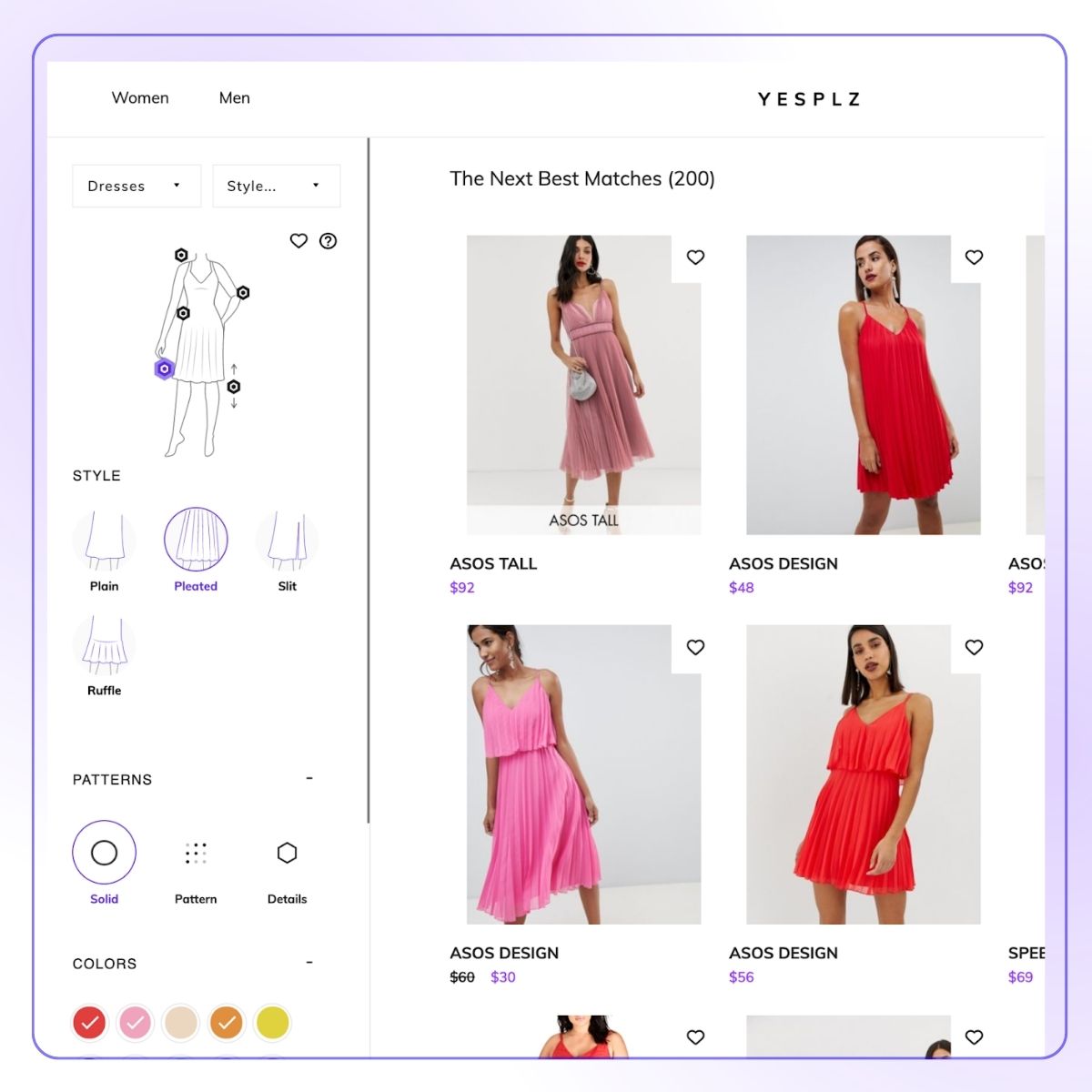
Fashion visual search is becoming more popular as shoppers struggle to communicate their preferences in text-based search. It’s powered by fashion AI that can understand both the content (what is a user searching for?) and context (why is the user searching for this product). Fashion visual search can overcome the limiting nature of text-based search, allow shoppers to explore more, and creates an intuitive way to search.
The core of deep learning algorithms. These weighted nodes have both input and output layers, and are modeled after the behavior of the human brain in its ability to recognize and identify patterns. When more than 3 neural networks are layered, this constitutes a “deep learning” algorithm.
Also known as “search clothes by image.” Users can upload an image of a product, and receive search results based on the product attributes in the original picture.
Although reverse image search for clothes was a great starting point for integrating new technology in eCommerce, there are more effective ways to search clothes by image. One problem with reverse image search is that it struggles to identify which products are the most important to the user.
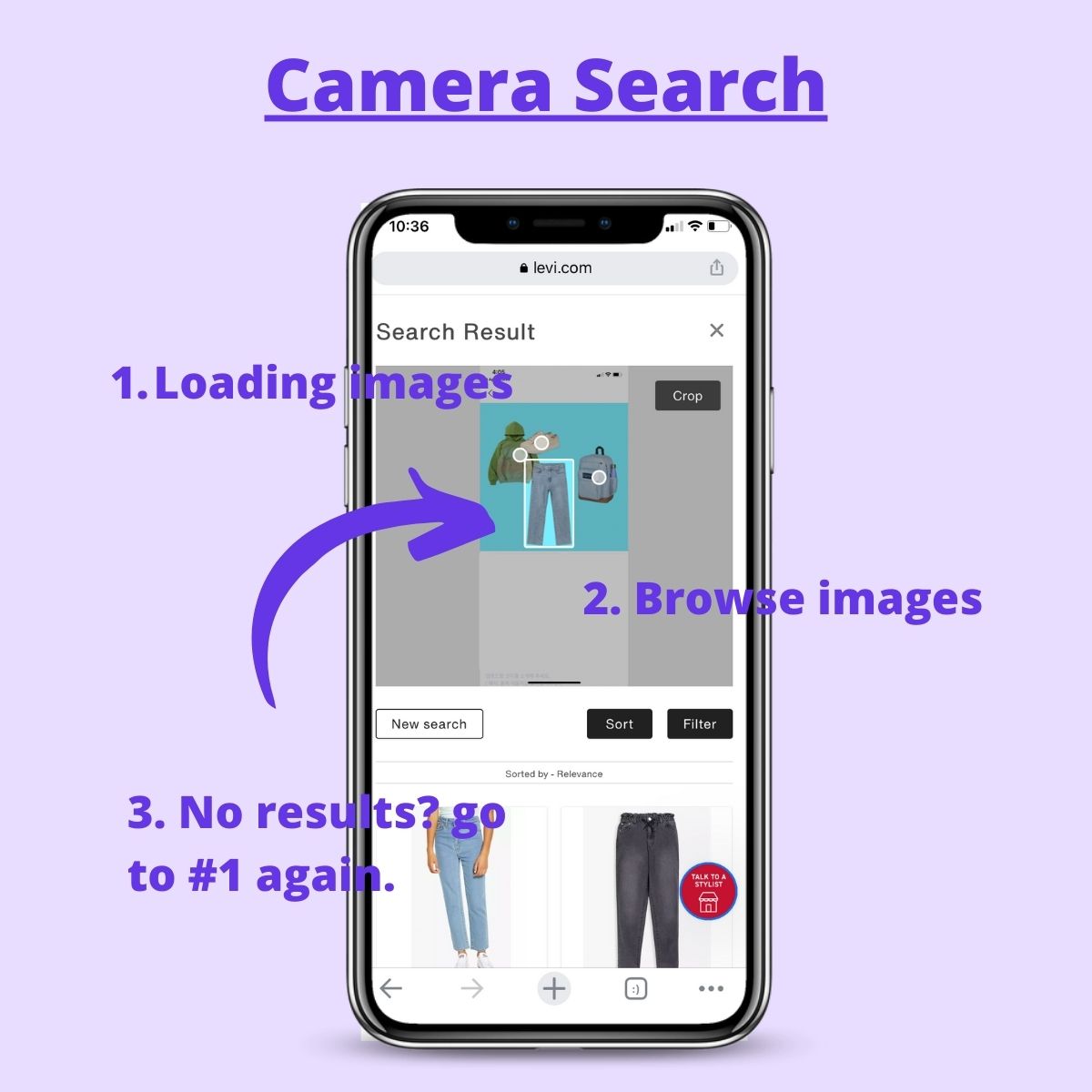
In 2023, there are more effective ways to utilize fashion AI to create unique search experiences. For example, the YesPlz Style Filter creates an intuitive, visual search filter for shoppers to engage with, and uses fashion AI to retrieve accurate results.
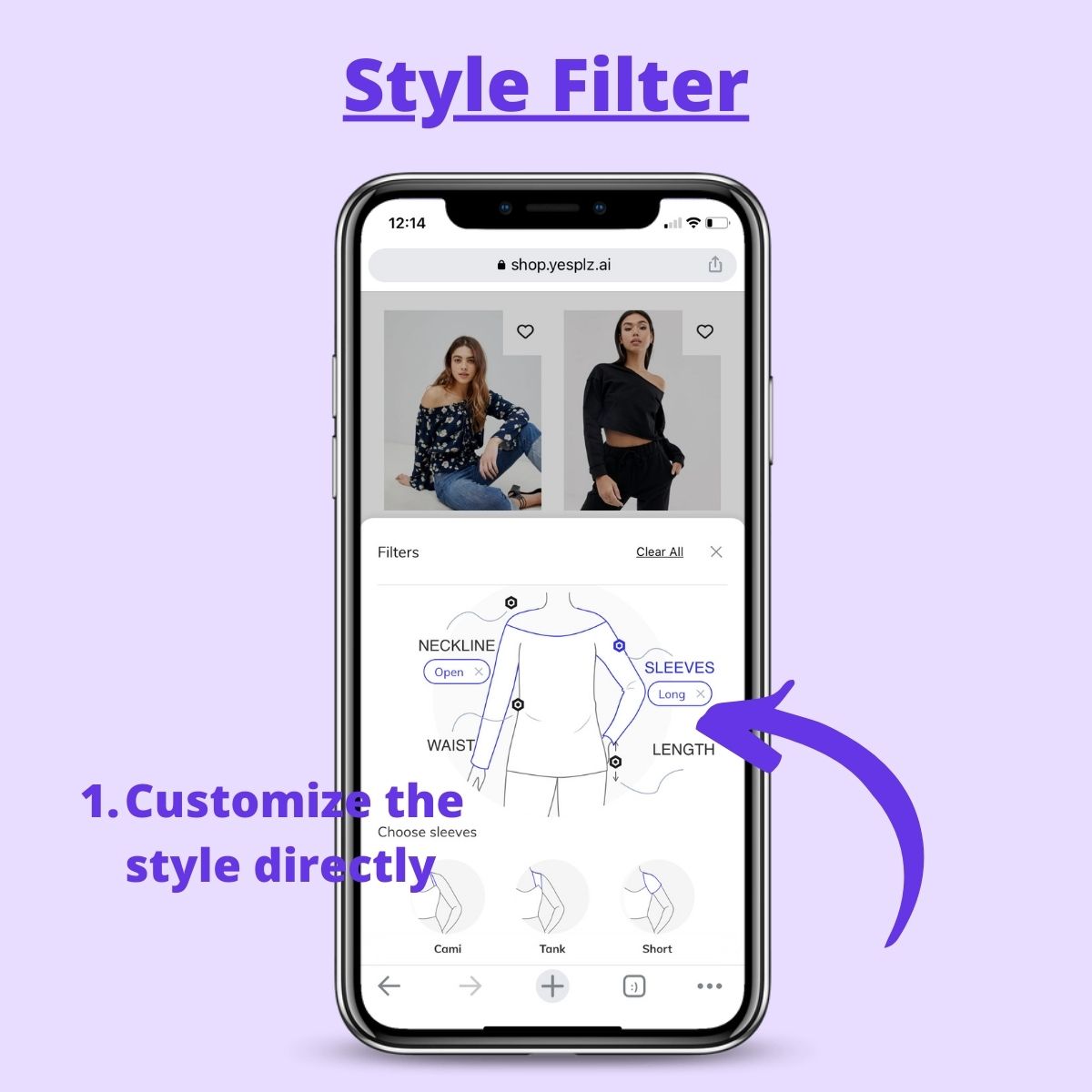
Typically an internal tool for retailers, where merchandisers input product information like style, color, silhouette, and pattern. Searchandising is the combination of “search” and “merchandising,” and can “autocomplete” this information for merchandisers to check.
The goal of searchandising is to provide rich search results that are unique to set of users, leading to more purchases. This means going beyond normal search rules to include personalization based on product tagging.
Searchandising includes:
-Product recommendations
-Search rules to show specific products at certain times (for example, holiday clothing in December)
Product suggestions based on user behavior and preferences. Text-based similar recommendations fall short in making accurate recommendations because of the complexity of fashion terminology. For example, a user searching for “blue miniskirt” might get a mix of recommendations that include blue products and miniskirts.
Enter AI. Through fashion AI, we can accurately predict the products that are fashion-forward and accurate. YesPlz’s AI algorithm learns not only fashion categories but can connect fashion preferences to draw conclusions. If a user is looking at leather stiletto boots, YesPlz similar recommendations will show products that look similar in style, or have the same “vibe.”
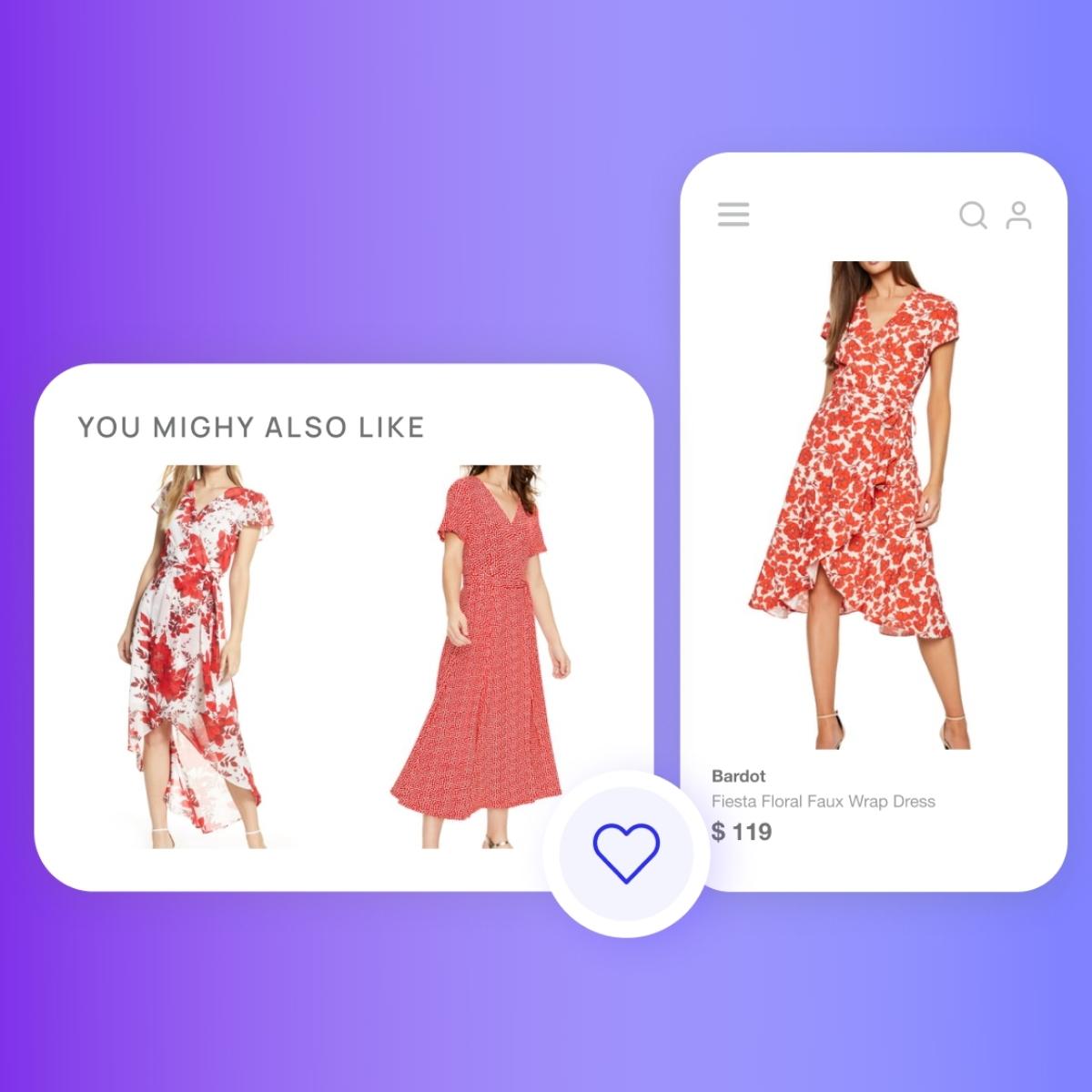
When considering a similar recommendation tool, take a look at the technology behind the tool. Is the AI trained to understand fashion preferences?
A best practice for product filters in eCommerce is to offer thematic filtering, as shoppers tend to shop by occasion or theme. However, this is difficult because of the subjectivity of fashion– a “romantic” thematic filter has a different meaning to different individuals.
Previously, only a human with a trained eye could thematically tag items. Now, AI has the capability to recognize the mood or theme of products from photos, and can easily curate similar vibes.
Thematic tagging, powered by AI, can save fashion eCommerce brands precious time and energy–while offering shoppers an engaging way to filter products.
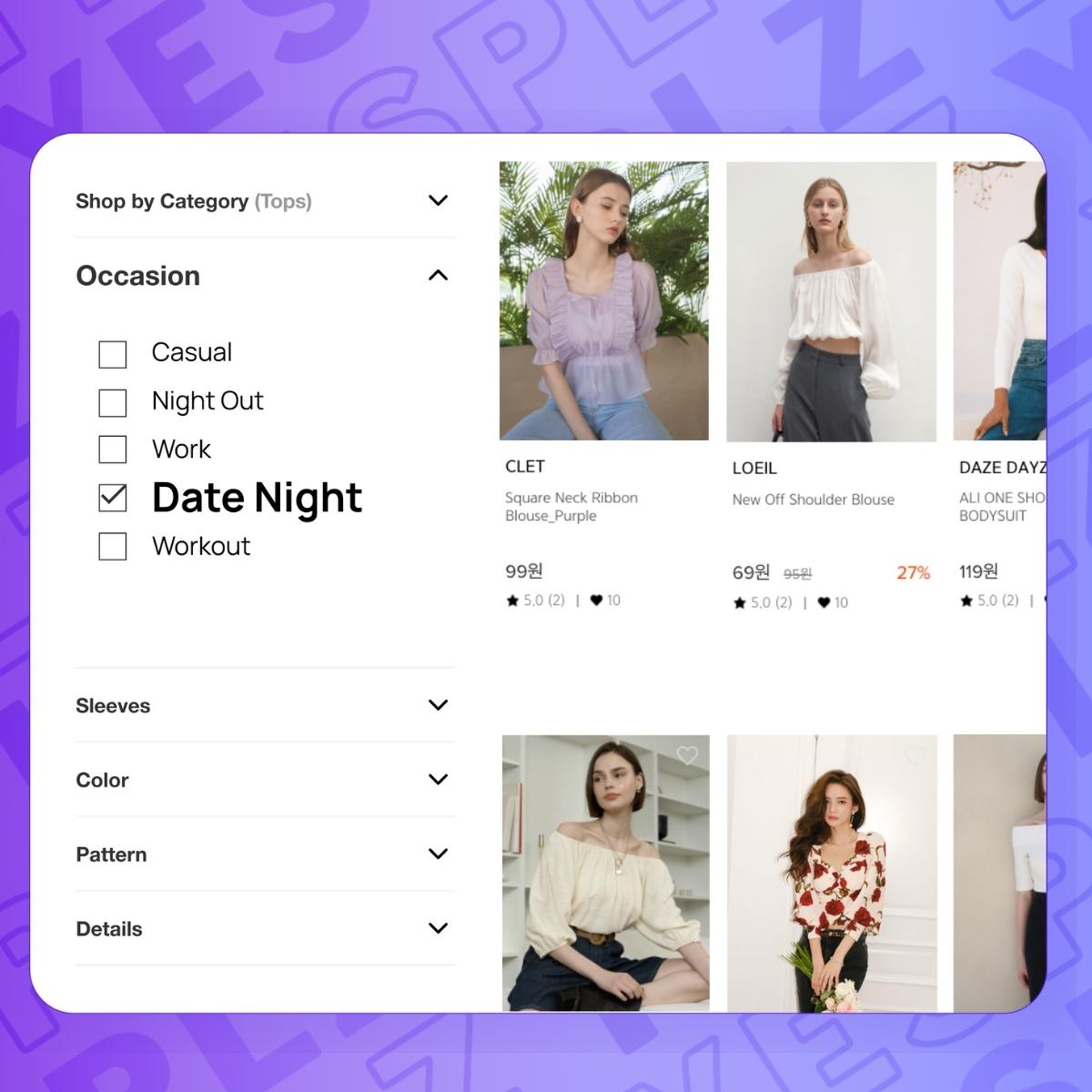
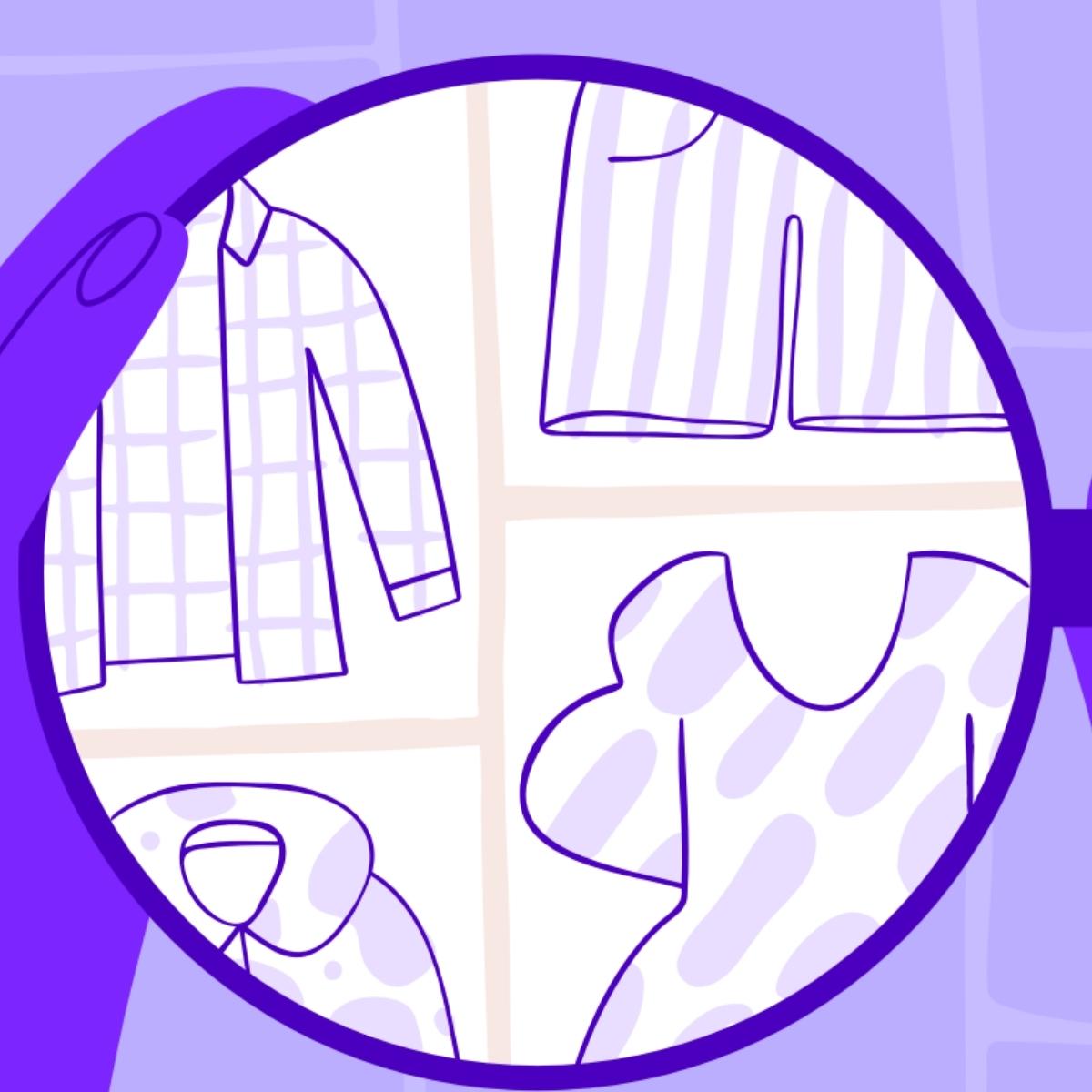
A text-search query is based on keywords, requiring users to input a set of words to describe a product and its attributes.
Visual search queries, on the other hand, use an image as the starting point for the search experience.
Combined, visual and text-based (hybrid) search can create a powerful search experience for shoppers. Hybrid search relies on AI to understand both text and visually learn product specifications.
Discover more fashion tech tips for your website!
Written by Jess Erdman
Content Marketing Lead
I'm passionate about creating cool content. The best part? I get to learn new things about fashion tech and ecommerce everyday. Have an idea or opinion about this article? Reach out at jess@yesplz.ai

Fix search typos and synonyms with AI site search. Agentic AI manages keyword variations automatically. Zero maintenance, better conversions.
by YesPlz.AI
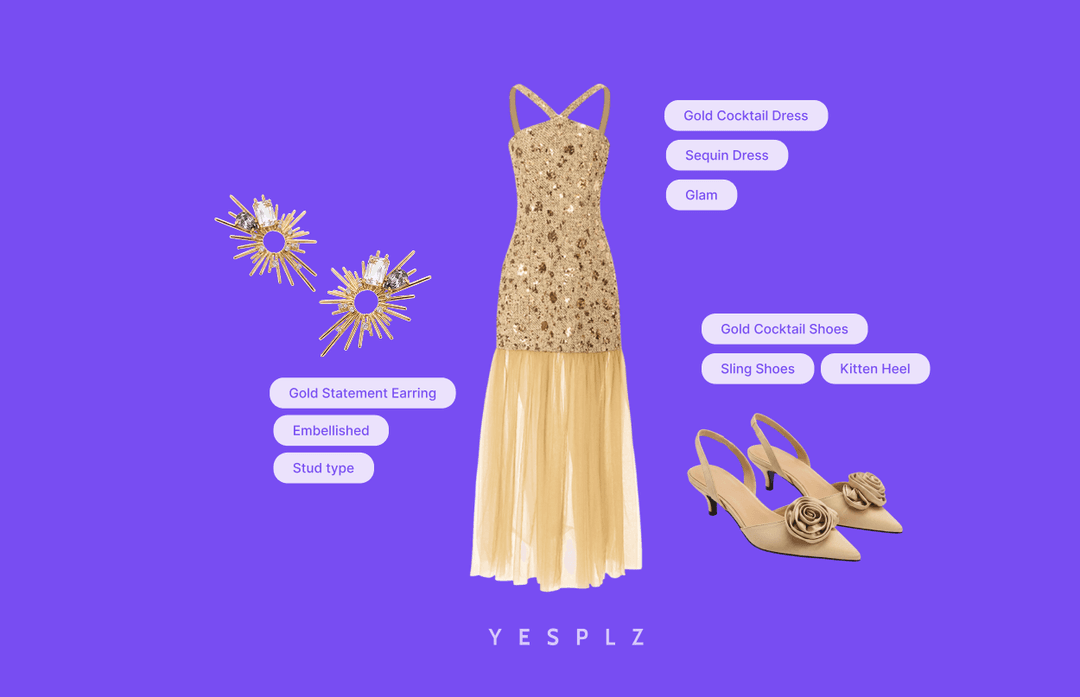
What are product tags used for? It’s a solution to low search CTR, limited filtering, manual collection curations, and more. Discover 6 essential use cases of product tags to transform search, filtering, SEO, and collections to boost sales.
by YesPlz.AI